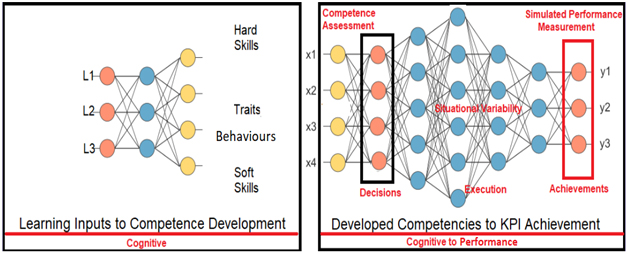SIMULATION

Simulation is an imitation of a real-world process or system, over time. The act of simulating something first requires that a model be developed; this model represents the key characteristics or behaviors of the selected physical or abstract system or process. The model represents the system itself, whereas the simulation represents the operation of the system over time.
Simulation games can be used to show the eventual real effects of alternative conditions and courses of action. Simulation is also used when the real system cannot be engaged, because it may not be accessible, or it may be dangerous or unacceptable to engage, or it is being designed but not yet built, or it may simply not exist. Such games make it possible for managers to have a first-hand experience of how difficult it is to move from ‘theory to practice’ or ‘from strategy to implementation’. What can appear straightforward in the planning phase ends up being much more complex when we start interacting with actual (or simulated) situations/people, as their reactions might not necessarily correspond to what we expected. These also allow us to bring managers in touch with a wide variety of situations, opportunities, attitudes and behaviours present in every organization. Such realistic simulation games provide a ‘play-ground’ in which one can collaboratively experiment with the use of different tactics, generating rich discussions about their appropriateness and the most effective way of facing different situations.
A ‘game’ approach is a non-threatening and risk-free way of assessing one’s strengths and weaknesses when confronted to high-pressure situations in which managing expectations, persistence, and team dynamics play a crucial role in determining the success or failure of projects ultimately aimed at having a significant impact on people’s habits, mind-sets and cultures.
Simulation provides simulated performances related to systems, processes and people. Simulated performances are outcomes that show a participants grasp on situational variability and understanding of interplays amongst different competence. A basket of simulations or a group of scenarios can also have the same simulated performance requirements as outcome.

Our platform/ engine Prayog has several features that reinforce learning and also enhance participants competence depth till Level 6 of Bloom’s taxonomy. Bloom's taxonomy is a set of three hierarchical models used to classify educational learning objectives into levels of complexity and specificity. The three lists cover the learning objectives in cognitive, affective and sensory domains. The cognitive domain list has been the primary focus of most traditional education and is frequently used to structure curriculum learning objectives, assessments and activities.
